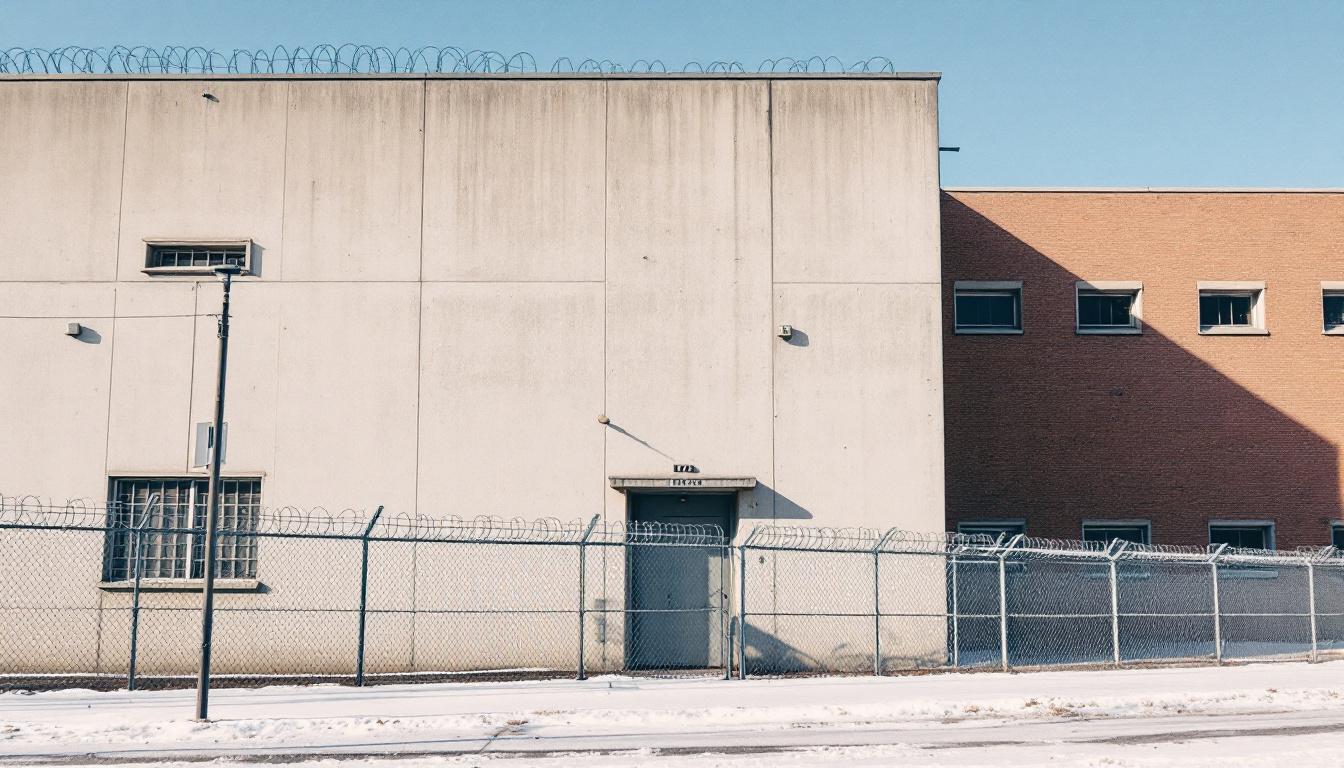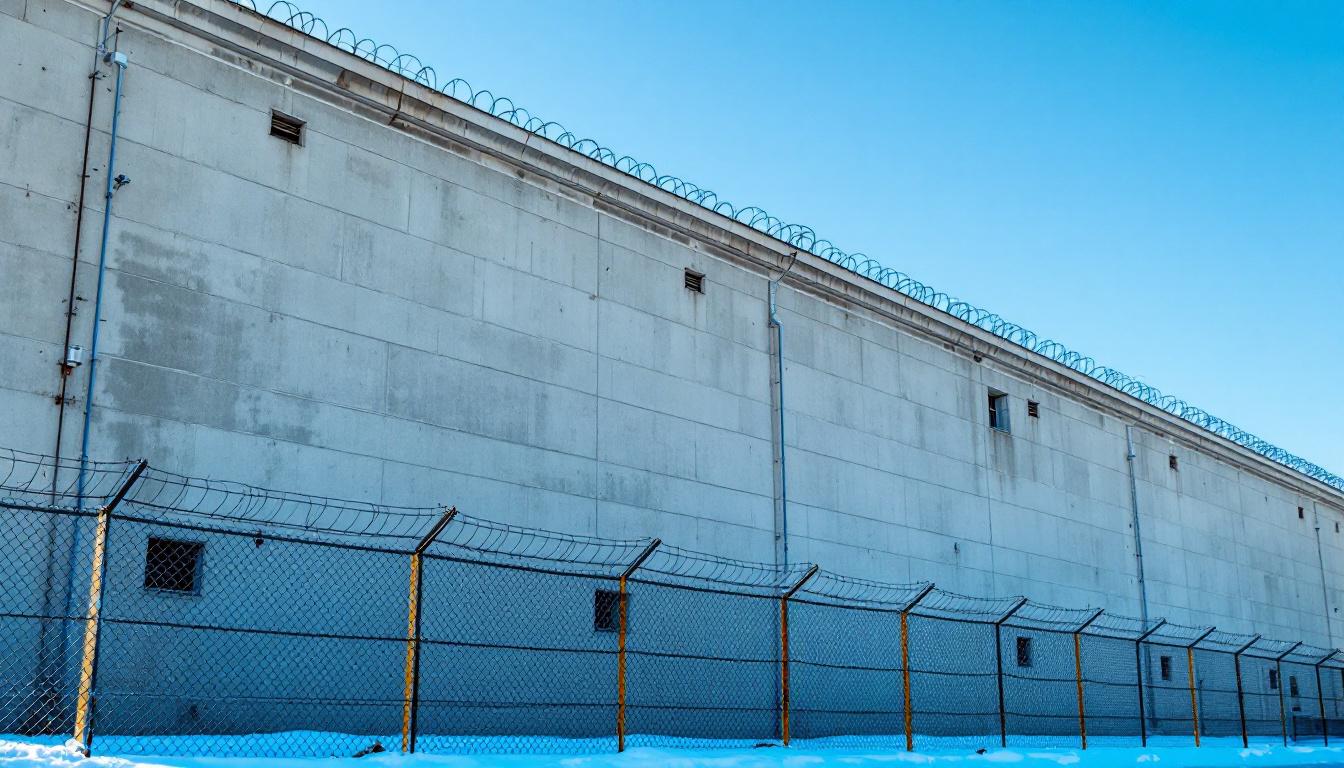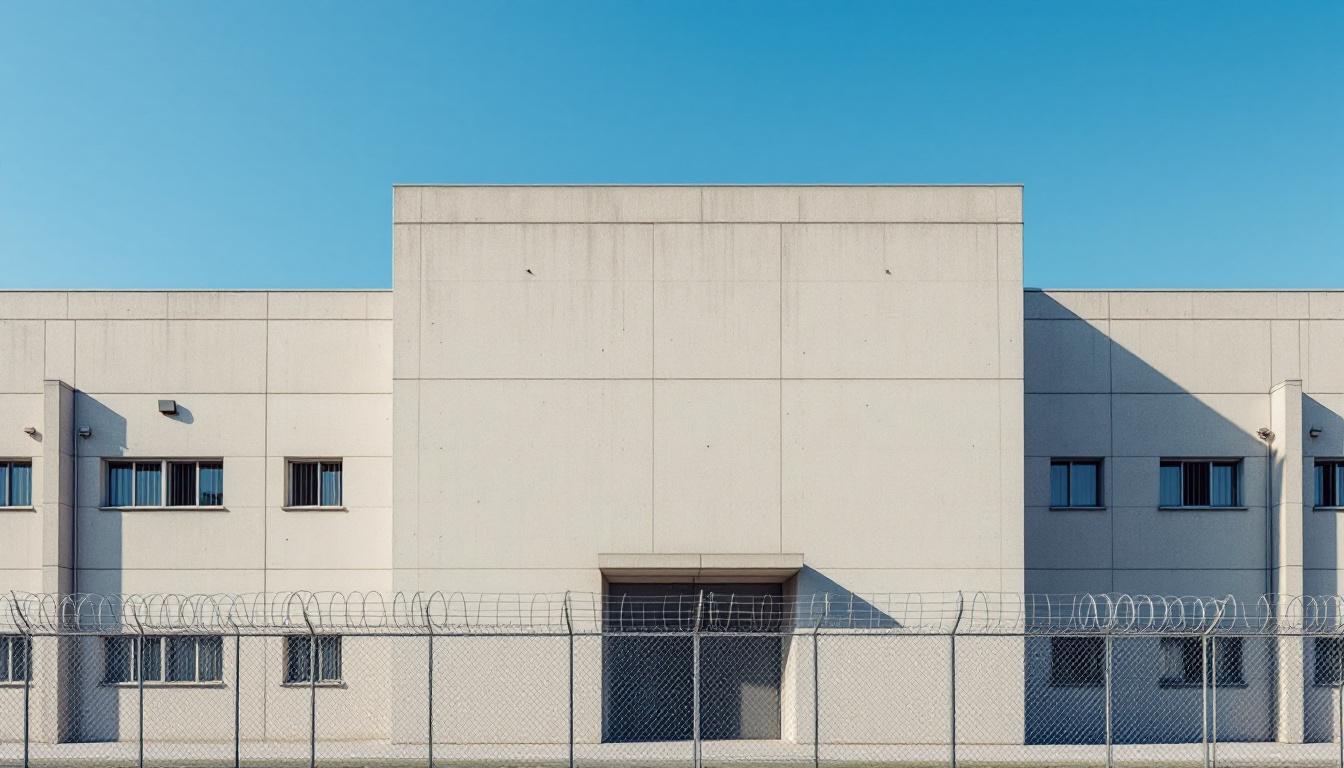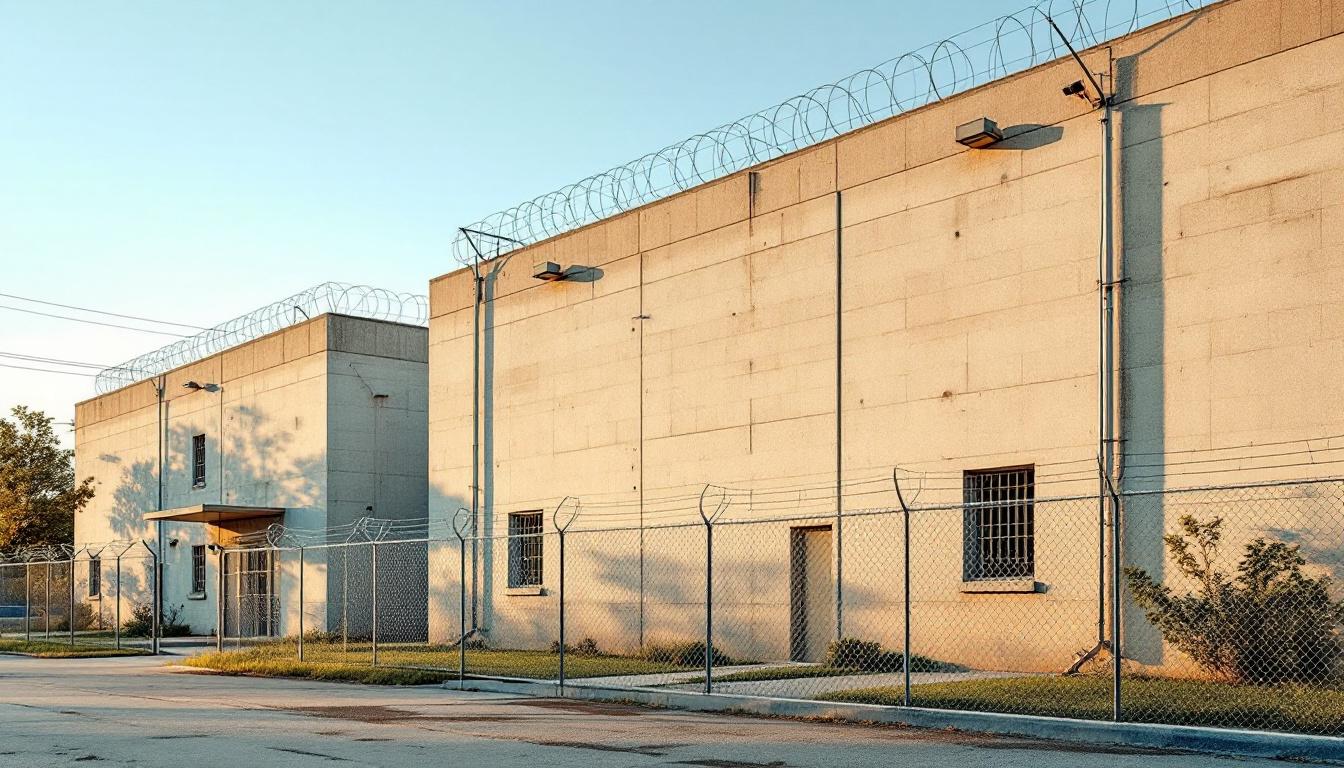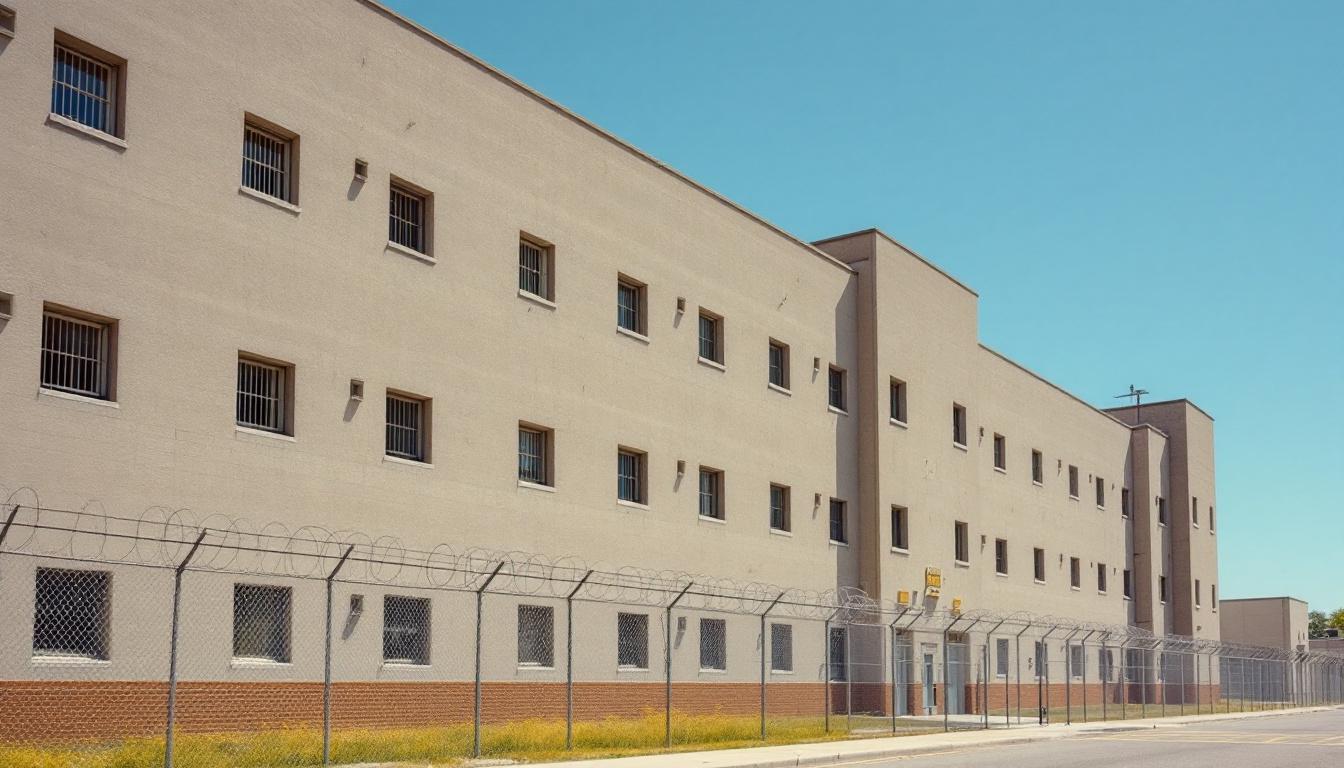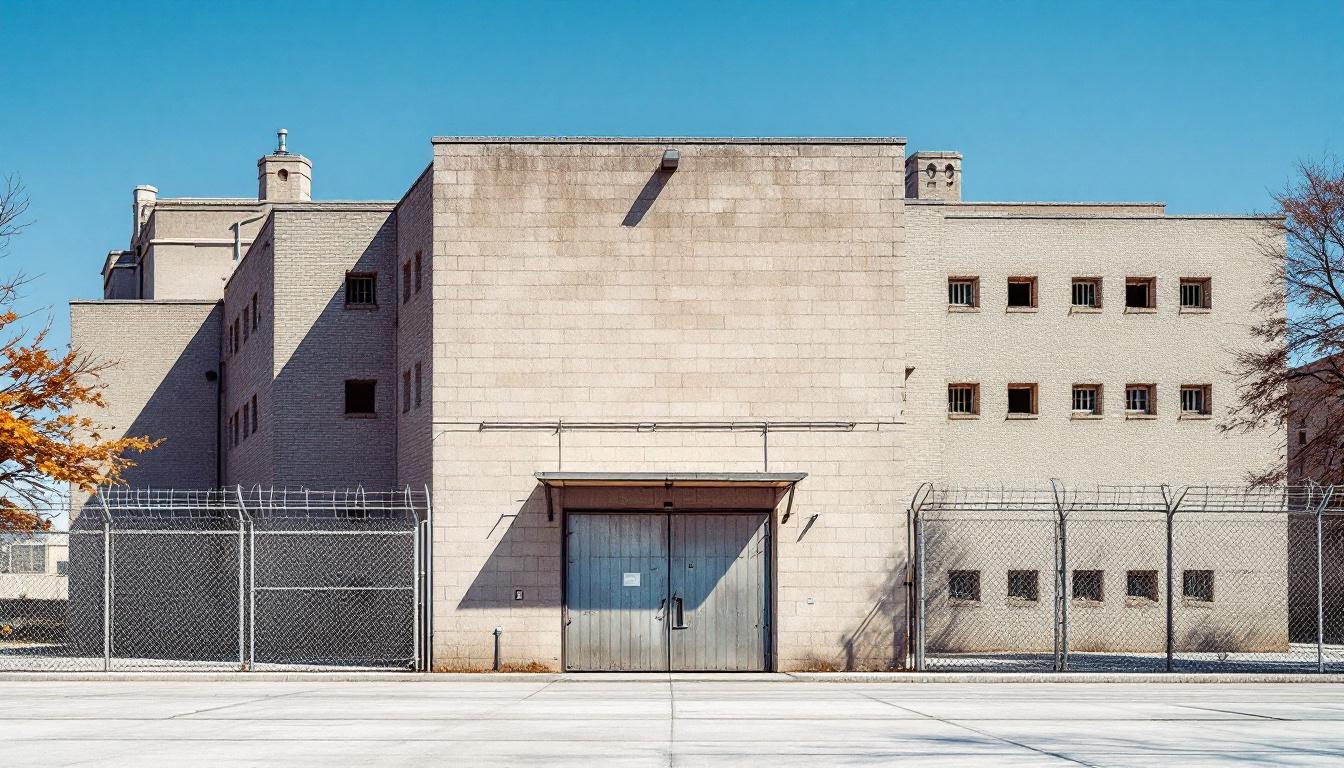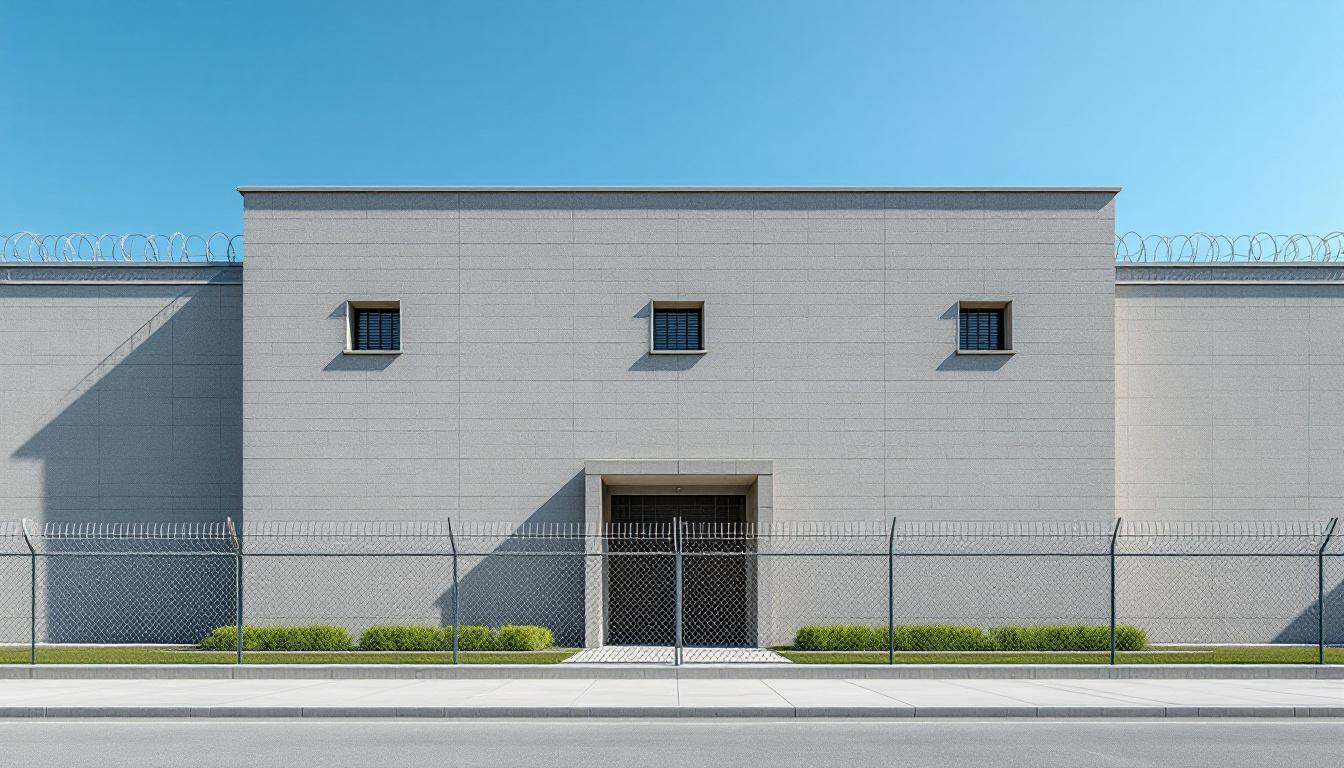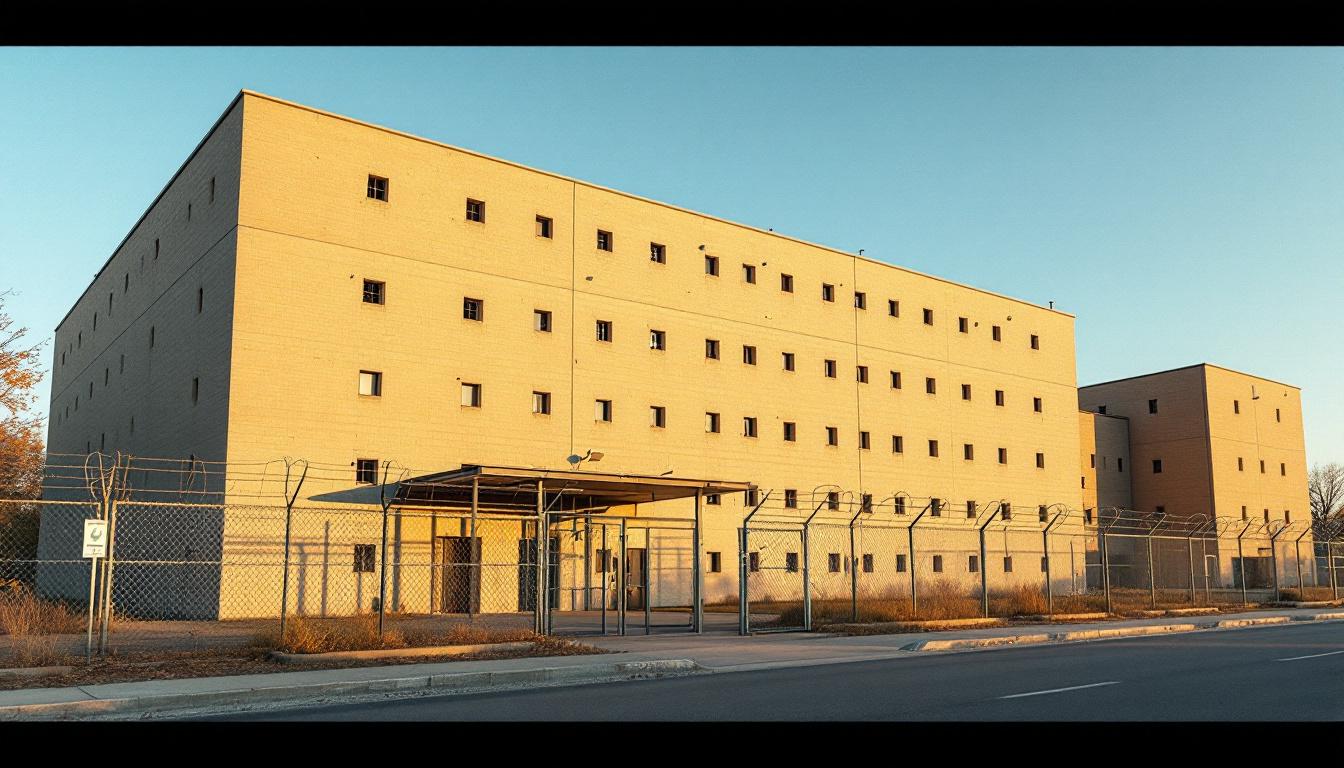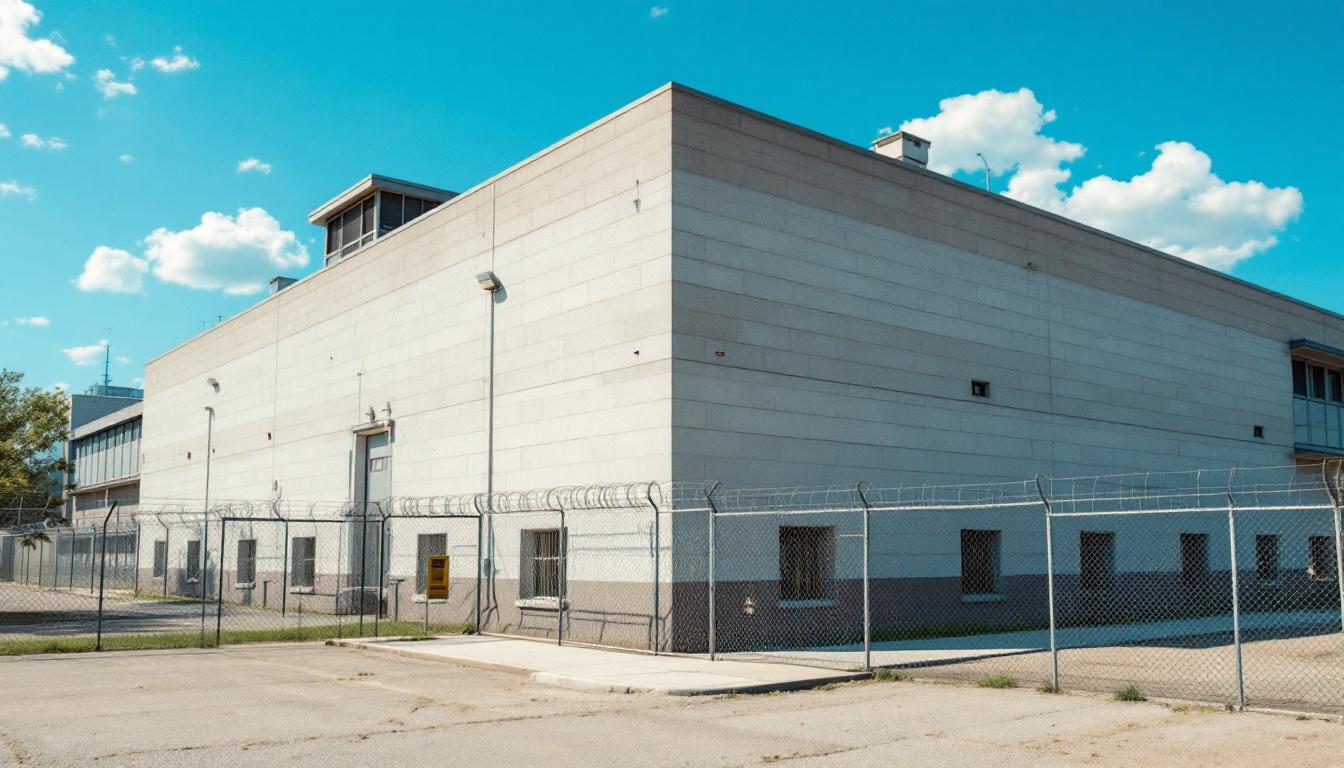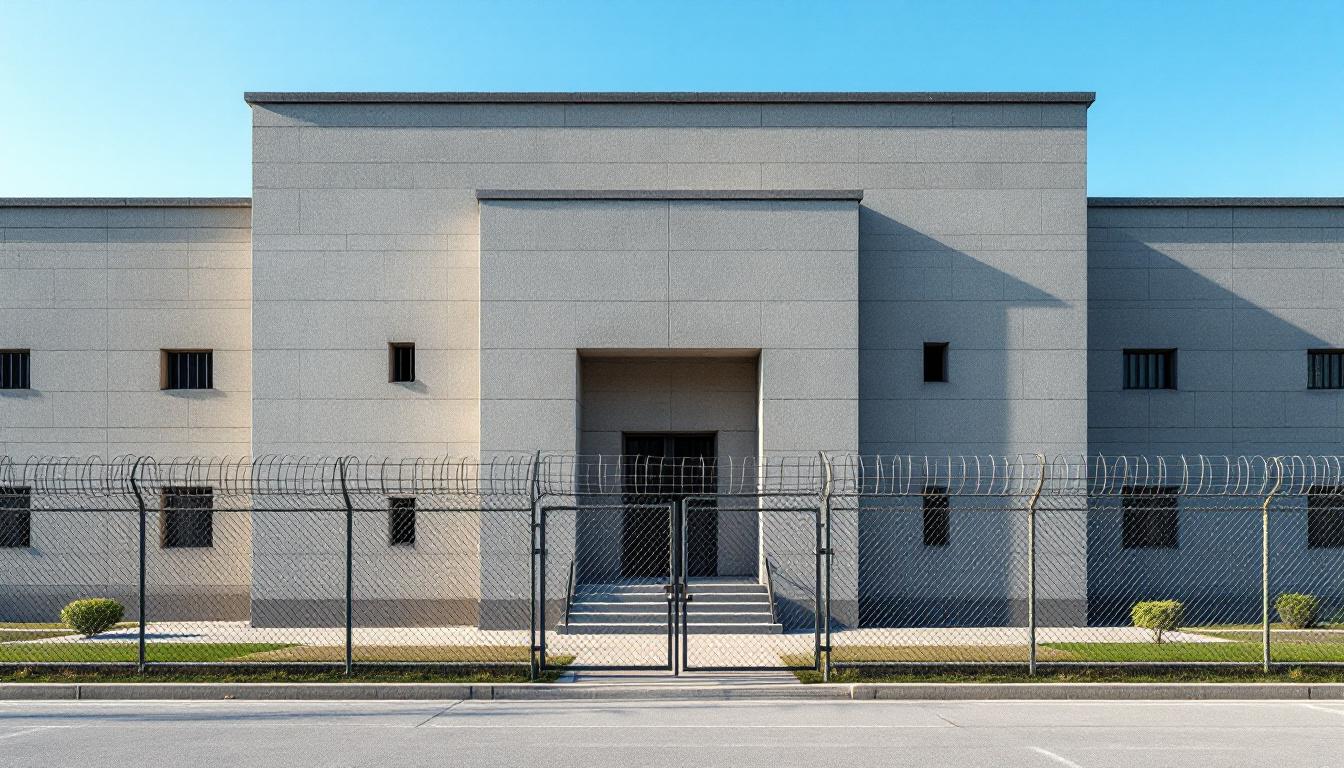
Quick Navigation
How to contact an inmate at Omaha Correctional Center
This comprehensive guide will walk you through how to connect with an inmate at Omaha Correctional Center. Follow the steps below to find an inmate and send letters and photos:
- Search for the inmate using our search tool below
- Create your account or log in to Penmate
- Write your message (up to 6,000 characters)
- Send instantly - inmates receive printed copies daily
Find an Inmate
Search for an inmate to start communicating today
Tip: You can search by first name, last name, or inmate ID number
To contact a person at Omaha Correctional Center start by searching for the person on the official facility website. Perform a search by following these steps:
- Step 1: Enter their first name and last name into the search form and click "Search"
- Step 2: Locate their inmate record
- Step 3: Write down their Inmate ID and any housing information provided
Important! Be sure to enter the person's full name. Nicknames should not be used.
How to Send Messages to Inmates

You can use your phone or computer to send emails, letters, and photos to an inmate. Messages are sent electronically to inmate tablets or kiosks at the facility. If you would like to send a message, start by searching for an inmate at Omaha Correctional Center.
Sending Photos and Postcards

A great way to send love and support to a loved one at Omaha Correctional Center is to send photos and postcards. It only takes a few minutes to send photos from your phone and it makes a huge difference. You can also mail postcards with words of support and inspiration, or design your own postcard for special moments like birthdays and holidays.
Important! Be sure not to send any explicit photos or they may not be approved by the facility. You can also use a photo printing app like Penmate to make sure your photos are printed at the correct size (4x6 or 3x5) and are mailed according to the rules and regulations of Omaha Correctional Center.
Frequently asked questions about Omaha Correctional Center
-
How long does it take to deliver a message?
If you're sending an email message your letter is usually delivered within 24-48 hours. For messages sent via mail you should expect delivery within 3-7 days. All messages will need be approved by Omaha Correctional Center.
-
How much does it cost to send a message to Omaha Correctional Center?
You can send a message free using your phone or mail a message via USPS for the price of a $0.60 stamp and envelope. You can also purchase credits or e-stamps from services starting at $1.99.
-
What services can I use to contact an inmate at Omaha Correctional Center?
Penmate
You can use Penmate to send letters and photos to an inmate from your phone. It's an easy way to stay in touch during your loved one's incarceration. Use the inmate locator to find an inmate's location and contact information, then you can send messages within a few minutes.
Securus messaging
Securus may be another option for communicating with an inmate at Omaha Correctional Center. You can create a friends and family account and purchase credits to send messages. All messages will be reviewed and must be approved by the facility.
JPay
Some county jails and state prisons may support sending messages with JPay. You must register an account with the system, find your loved one, and purchase stamps to send messages. For some locations you can also attach photos.
Smart Jail Mail
You may also check if Smart Jail Mail is available at Omaha Correctional Center. Smart Jail Mail is operated by Smart Communications and has contracted with some state and county jails. After purchasing credits, your messages and photos are sent to the facility, printed out, and then handed out to your loved one.
-
What is the mailing address of Omaha Correctional Center?
Mailing address:
Omaha Correctional Center
2323 Ave J
Omaha, NE 68110
Phone: (402) 595-3963 -
What are the visiting hours at Omaha Correctional Center?
Visiting hours at Omaha Correctional Center vary by housing unit and security level. Generally, visits are scheduled on weekends and holidays, with some facilities offering weekday visits. Contact the facility directly at (402) 595-3963 or check their website for the current visiting schedule. Visits typically last 30-60 minutes and must be scheduled in advance.
-
What items are prohibited when sending mail to Omaha Correctional Center?
Prohibited items typically include: cash, personal checks, stamps, stickers, glitter, glue, tape, staples, paperclips, polaroid photos, musical or blank greeting cards, hardcover books, magazines with staples, and any items containing metal or electronics. Only send letters on plain white paper with blue or black ink. Photos must be printed on regular photo paper (no Polaroids). Always check with Omaha Correctional Center for their specific mail policies.
-
How do I send money to an inmate at Omaha Correctional Center?
You can send money to an inmate at Omaha Correctional Center through several methods: 1) Online using JPay, Access Corrections, or the facility's approved vendor, 2) Money orders mailed directly to the facility with the inmate's name and ID number, 3) Kiosks located in the facility lobby, or 4) Over the phone using a credit or debit card. Fees vary by method, typically ranging from $2.95 to $11.95 per transaction.
-
Can I schedule a video visit with an inmate at Omaha Correctional Center?
Many facilities now offer video visitation as an alternative to in-person visits. At Omaha Correctional Center, video visits may be available through services like Penmate, Securus Video Connect, GTL, or ICSolutions. Video visits typically cost $10-20 for 20-30 minutes and must be scheduled in advance. You'll need a computer or smartphone with a camera and reliable internet connection. Contact the facility for their specific video visitation policies and approved vendors.
-
What identification do I need to visit an inmate at Omaha Correctional Center?
All visitors must present valid government-issued photo identification such as a driver's license, state ID, passport, or military ID. Minors must be accompanied by a parent or legal guardian who can provide the minor's birth certificate. Some facilities require visitors to be on the inmate's approved visitation list, which may require a background check. Contact Omaha Correctional Center for specific ID requirements and visitor approval procedures.
-
How can I find out an inmate's release date?
To find an inmate's release date at Omaha Correctional Center, you can: 1) Use the online inmate search tool if available, 2) Call the facility's records department, 3) Contact the inmate's case manager or counselor, or 4) Have the inmate provide this information during a call or visit. For privacy reasons, some facilities only release this information to immediate family members.
Facility Overview
Official Website

About Omaha Correctional Center
Educational programming, vocational training, and mental health support form the cornerstone of daily operations at Omaha Correctional Center, NE, where structured rehabilitation meets comprehensive security protocols. Located in Phoenix, Nebraska, this NE correctional facility operates within the state’s broader correctional framework, typically serving individuals through a balanced approach that prioritizes both public safety and personal development opportunities. The facility generally maintains various security levels to accommodate different custody classifications, while staff members work to create an environment where individuals services can be delivered effectively alongside necessary supervision measures.
Within Nebraska’s correctional system, the Phoenix-based facility typically offers programming designed to address educational deficits, substance abuse issues, and employment readiness. Residents may participate in literacy programs, GED preparation, and various vocational workshops that aim to develop marketable skills for eventual reintegration. Mental health counseling and substance abuse treatment programs are generally available, recognizing that many individuals entering the correctional facility benefit from therapeutic intervention. The facility’s approach often emphasizes structured daily routines that incorporate work assignments, educational activities, and rehabilitation programming, creating opportunities for personal growth while maintaining the security protocols essential to institutional safety. This commitment to security and rehabilitation reflects broader trends in midwest region corrections, where facilities increasingly balance custody requirements with evidence-based programming designed to reduce recidivism and support successful community reentry.
Programs & Services
From foundational literacy skills to advanced vocational certifications, the breadth of developmental opportunities at Omaha Correctional Center reflects a comprehensive approach to individual growth and community preparation. The facility typically emphasizes skill-building across multiple domains, recognizing that successful reintegration often requires addressing educational gaps, developing marketable abilities, and building essential life management skills. This multi-faceted approach may offer individuals various pathways to personal development and future stability.
Educational opportunities often form the cornerstone of programming, with basic education programs addressing fundamental literacy and numeracy needs alongside GED preparation services. Special education services may provide targeted support for individuals with learning differences or developmental needs, ensuring accessible pathways to academic achievement. Additionally, vocational training opportunities typically focus on developing practical, marketable skills in trades and technical fields that align with regional employment demands, giving individuals concrete preparation for post-release career development.
Support services and therapeutic opportunities typically address the broader challenges individuals face during incarceration and reentry planning. Work programs may offer structured employment experience while building responsibility and routine, while time management opportunities often help individuals develop essential organizational skills. Additionally, specialized programming such as domestic violence intervention may address underlying behavioral patterns, and family reunification services typically focus on rebuilding and strengthening family relationships that serve as crucial support systems during the transition back to community life.
Daily Life & Visitation
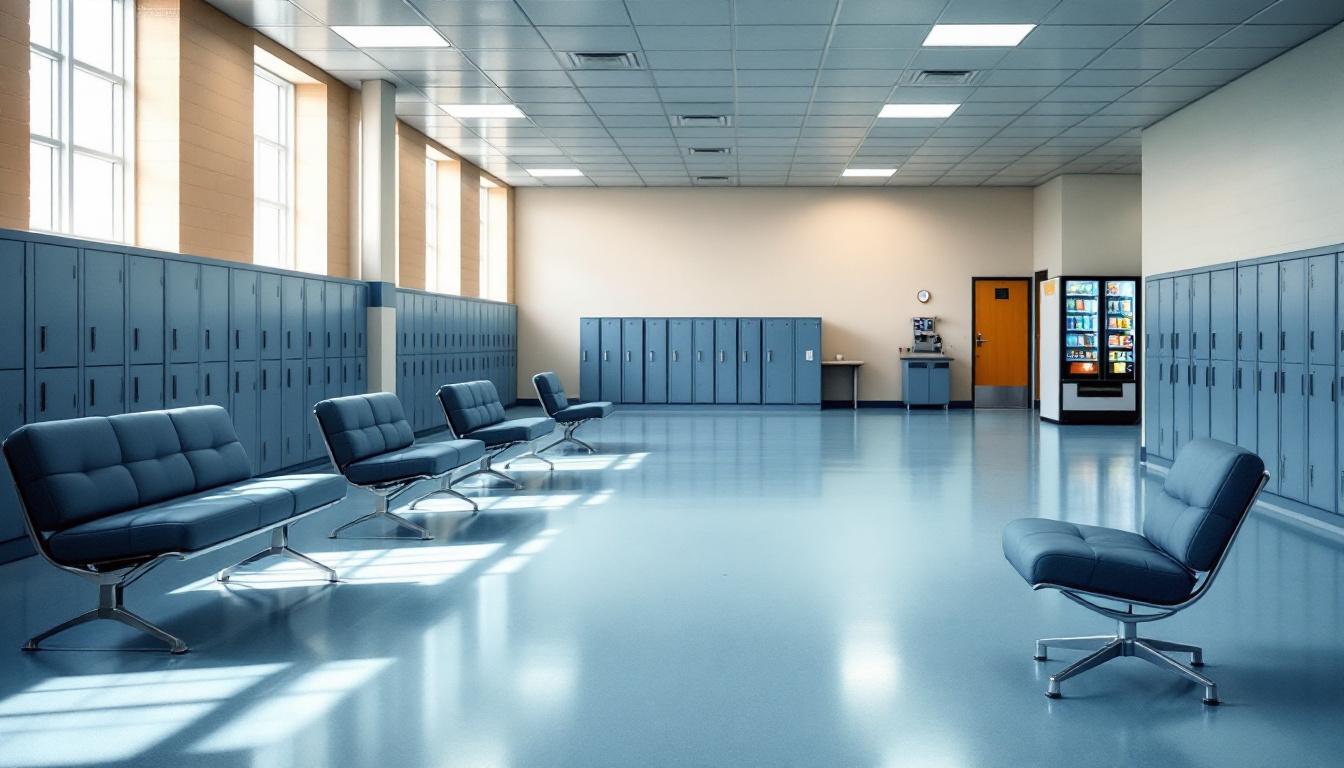
The sound of movement begins before dawn as individuals prepare for another structured day within the facility’s routine. Daily life now revolves around scheduled activities that typically include meals, work assignments, and programming opportunities. Count times occur regularly throughout the day, providing structure while ensuring accountability. Individuals generally wake early and follow established schedules that may vary depending on their housing unit and assigned responsibilities.
Living accommodations at the facility typically consist of shared cells or dormitory-style housing units, where individuals maintain personal spaces within the confines of institutional guidelines. Each person usually has access to basic necessities and may store approved personal property according to facility regulations. Additionally, commissary services offer opportunities to purchase supplemental items like snacks, hygiene products, and writing materials. While privacy is limited, individuals often develop routines that help them adapt to their living environment and maintain personal dignity within the structured setting.
Programming schedules offer various activities designed to support rehabilitation and personal development. Work assignments may include kitchen duties, maintenance tasks, or facility operations that provide structure and skills training. Recreation opportunities typically include access to exercise areas, library services, and educational programs when available. Family connections remain important through visitation policies that generally allow scheduled visits with approved individuals, while phone privileges and correspondence help maintain communication with loved ones. While these activities provide meaningful engagement, the overall experience emphasizes accountability and preparation for eventual reintegration into the community.
Ready to Connect?
Start communicating with your loved one today
Search for an Inmate
